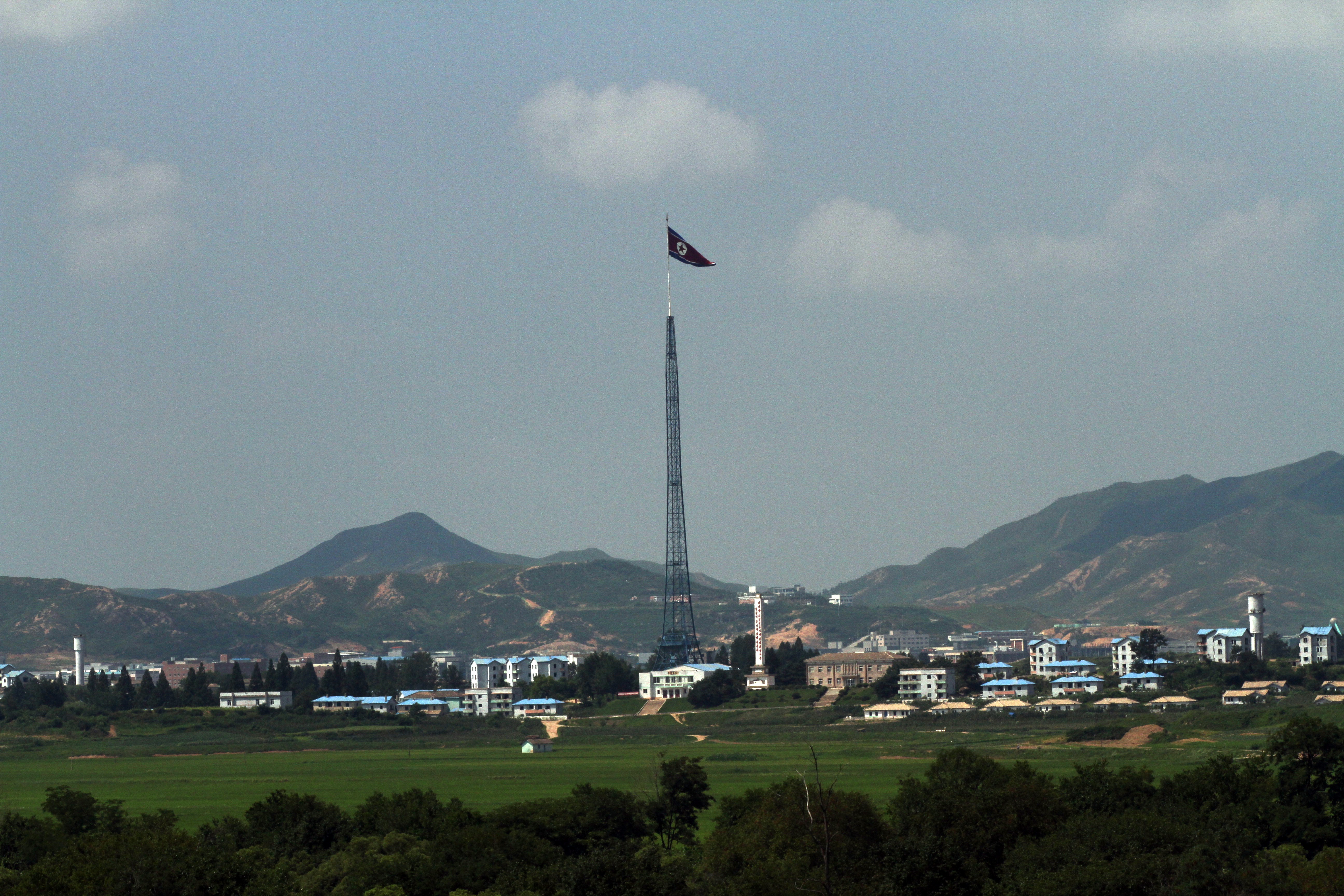Korean Peninsula
Music versus Garbage

Nordkorea schickt Müllballons, Südkorea antwortet mit dröhnendem K-Pop. Die bizarre Situation auf der koreanischen Halbinsel erscheint albern, ist aber bedrohlich. Ein militärischer Zwischenfall wird wahrscheinlicher.
© U.S. Army Garrison Casey, CC BYNorth Korea sends garbage-filled balloons, South Korea answers with resounding K-pop. The bizarre situation on the Korean peninsula seems ridiculous but is threatening. A military incident is becoming more likely.
“Dynamite” is one of the most admired songs of the South Korean boy group BTS. In June, this song not only echoed through clubs and teenagers’ rooms but also across the mine fields of the demilitarized zone in Korea.
The temporary reactivation of propaganda loudspeakers was South Korea’s reaction to the balloons of garbage and dung that the North lets float southward since the end of May. The South Korean soldiers’ playlist also included global news as well as information on the success of Samsung smartphones on the global market. The sonication has been stopped again, though. The South Koreans, however, reserve themselves the right to turn them back on at any time.
Garbage balloons versus K-pop – the situation on the Korean peninsula seems bizarre and ridiculous. This should not be underestimated, though. Much indicates that the situation may further heat up. South Korean soldiers have lately fired warning shots several times because North Korean soldiers had crossed the Demarcation Line border during fortification works in the DMZ. A serious military incident seems more and more likely.
A similar situation has led to a military escalation before. In 2015, the North Koreans shot the South Korean loudspeaker systems with artillery grenades. The South Koreans, in turn, answered by shelling North Korean positions. Back then, nobody was hurt. After the shootout, both sides’ diplomats met in the DMZ and defused the crisis.
Such a diplomatic encounter is currently not in sight. For more than a year, there has not been any remaining communication channel between both states. North Korea is more and more decoupling itself from the South. In a speech shortly before the turn of the year, ruler Kim Jung Un announced that his country was no longer aiming for a peaceful reunification. North Korean media implemented this historical U-turn; not in a word have they mentioned a unified Korea ever since.
One reason for the stronger isolation and the increasing tensions should be the changed geopolitical state. Since Russia needs North Korea as its munition supplier for its aggressive war against Ukraine, the relationships between the two countries have noticeably improved. This was also shown by the ostentatious summit between Putin and Kim in June. The once highly isolated North Korea has suddenly gained more economic and political options and does not have to fear a condemnation by the UN Security Council. Hence, it can behave way more aggressively and confidently.
Moskow, however, has no interest in conciliatorily influencing North Korea. The opposite is the case: Putin should be delighted that the US, as the protective power of South Korea, has to deal with another conflict. Regarding the framework conditions, it cannot be ruled out that the North may once again target loudspeaker systems or try otherwise to put pressure on South Korea.
Particularly as the announcements are highly objectionable for the regime: According to South Korean media, they reach up to 30 km into the North Korean hinterland. The Regime regards undesired interference through leaflets, announcements, or smuggled USB sticks as an existential threat to the system. This is also reflected in the draconic punishments. Whoever is caught with South Korean pop songs in North Korea risks decades-long imprisonment in a labor camp.
Difficult situation for Yoon
South Korea does not shy away from escalation, either. The conservative South Korean president, Yoon Suk Yeol, counts on deterrence and harshness in his North Korea politics. Hence, his government to date has not tried hindering South Korean activists from sending balloons with leaflets and USB sticks towards the North – these actions are regarded as unnecessary provocations by many South Koreans. The private propaganda campaigns have also been the trigger for the current garbage dispatch from the North.
The garbage balloons, however, now put Yoon in a dilemma. On the one hand, they undermine the South Korean state’s promise of protection. People being seriously harmed cannot be ruled out. A garbage ballon, for example, has shattered a car window in South Korea. On the other hand, a military response to the balloons would be totally unreasonable. By temporarily reactivating the loudspeakers, he chose a middle way. His decision, however, is not without danger.
The South Korean reaction to a possible shelling on the loudspeakers by the North would probably be backfire. President Yoon has several times called on the South Korean soldiers to immediately counter every attack from the North with backfire – and that without having consulted superiors.
Due to the garbage balloons from the North, South Korea also completely abrogated a military agreement between both states, from which it had already partially withdrawn after a North Korean satellite launch. The North Koreans did not regard themselves as bound to that covenant anyway. A puffer zone, which the agreement should ensure, does not exist anymore. Now both states’ troops are faced with each other as close as they had not for a long time.
*Frederic Spohr is the head of the Korea office of the Friedrich Naumann Foundation for Freedom in Seoul.
Translated into English by: Elisabeth Gläser, Intern, FNF Korea
